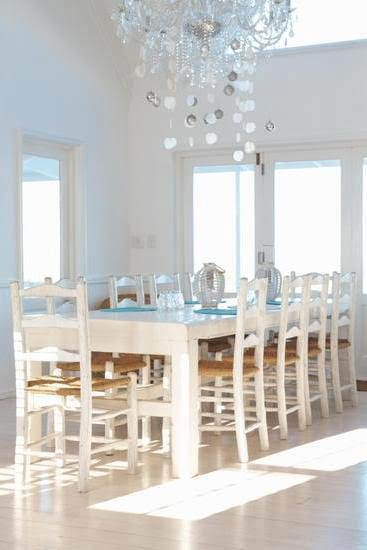Introduction
Feng shui is the ancient Chinese practice of arranging furniture to bring about balance and harmony in the home. This includes the flooring of one’s home – which can impact how energy flows through space, as well as how it is displayed. Feng shui flooring materials are intended to create a beneficial environment which encourages overall wellbeing and positive energy flow.
The type of flooring material used in a feng shui setting should be chosen carefully, considering both aesthetics and its ability to promote Chi energy flow around the space. Materials such as wood, stone, or linoleum can all be used in various ways to help achieve this harmonious atmosphere. Darker colors tend to absorb energy while lighter materials reflect it – this can affect the overall feel of a room and be useful when attempting to balance yin and yang forces. Different types of textured floorings can also be utilized to bring needed energy shifts for an individual occupant’s wellbeing.
In addition to its aesthetic benefits, there are other practicalities that should also be taken into consideration when choosing a suitable feng shui flooring style – such as durability, comfortability, and indoor air quality (IAQ). Some studies have even shown that certain compounds found in carpets can emit toxic gasses over time – so selecting eco-friendly and non-toxic material options is highly recommended for those with asthma or other sensitivities.
Feng shui flooring is just one way homeowners can create healthier spaces for their families. By understanding how these different materials affect energy flow throughout your home you can make great strides towards creating an environment that supports good health and positive energy all year long!
Benefits of Installing Feng Shui Flooring
Feng shui flooring can benefit your home with increased positive energy. Installing feng shui compliant floors can create balance, good vibes, and a calming atmosphere, which is great for relaxation, hosting friends and family, and promoting healthy sleep patterns. Specific materials used can represent a different type of energy: wood evokes earthy energy and encourages communication; tile gives off the feeling of movement; while stone conveys strength and durability. Feng shui flooring helps connect the indoors to nature, which can boost unity in your home. In addition to creating positive energy in a space, installing feng shui flooring can also add beauty and style to a room that stands out from the rest. Different shades of hardwood or traditional tiles can inspire feelings of luxury and comfort with every step. No matter your interior style, there are multiple options to choose from when adding elements of feng shui into your home with flooring.
Types of Feng Shui Flooring Material
Feng Shui flooring is based on the principles of energy flow and balance within a home. Certain types of materials are thought to promote better energy flow, such as wood and bamboo. Wood floors in particular are believed to contribute to a healthy balance between yin and yang energies. Wooden floors have an inherent warmth that calms an environment and promotes overall good vibes. Natural stones like marble, granite, slate, or quartz can also be used as flooring materials in Feng Shui because they come directly from the Earth and symbolize stability and strength. Other popular Feng Shui-approved materials include ceramic, vinyl, laminate, cork, or even carpet – although this last one should only be considered if there is another layer of hard surface under it like linoleum or bamboo. Each material has its own benefits and drawbacks when it comes to Feng shui; for instance, stone surfaces may feel cold underfoot and absorb sound differently than softer surfaces like carpeting or laminate flooring. Depending on individual preference, homeowners should consider these factors when selecting a material for their space.
Feng Shui Flooring Trends & How to Incorporate Them
Feng Shui has been around for centuries, but its timeless principles are becoming increasingly popular in modern design. Feng Shui aims to create harmony with the space in which you live or work by creating a balanced energy flow. Flooring plays an important role in Feng Shui due to its ability to affect the energy of your home or office. Here are some of the more popular feng shui flooring trends and how homeowners can incorporate them into their homes:
1. Natural Materials: Using natural materials like bamboo, cork, and hardwood is a great way to increase the positive influence of feng shui. These flooring materials are believed to have healing and balancing properties that will help improve your wellbeing.
2. Neutral Colors: Experts suggest selecting neutral colors for flooring as it’s believed that this will make the room feel larger, lighter and more peaceful. Soft toned rugs, carpets or tile with earthy patterns can also be used to promote calmness and serenity in a room.
3. Geometric Patterns: Geometric patterns can be used to bring balance and harmony into any space since they represent order, structure, and symmetry. Bold designs offer a unique edge while lending a calming visual energy to the space as well.
4. High-quality Materials: Selecting durable materials like stone tiles is essential when incorporating feng shui flooring into your home because it’s important that your floors don’t need frequent replacements – this could disrupt the positive flow of energy in your home!
Expert Tips for Choosing the Right Feng Shui Flooring
When trying to create a harmonious home with Feng Shui, it’s important to choose the right flooring material. From hardwood to laminate, each option has its own unique energy and color that can be used to create a positive space. Here are some expert tips for selecting the best Feng Shui flooring for your space:
1. Choose materials that are sustainable and long-lasting: Natural solutions like hardwood, bamboo, or cork offer lasting value while promoting eco-friendliness at the same time. A sustainable flooring will ensure that you reap optimum benefits from your Feng Shui efforts over many years.
2. Select flooring colors in accordance with their energy profile: Based on the five elements of Chinese philosophy – wood, fire, earth, metal and water – there are specific colors associated with each element (wood is green, water is blue/black etc.). If a room is particularly linked to one element, be sure to pick flooring according to this system.
3. Consider how different textures impact the feeling of the room: From classic hardwood floors to carpets in various thicknesses and patterns, textures can have a big influence on how we perceive a particular space. Look for gentle curves and lines which promote relaxation or go for bolder options if you want an uplifting feel.
4. Take maintenance into account when choosing materials: Whether you’re planning on doing DIY projects or hiring professionals for installation and ongoing cleaning & maintenance tasks would be an important consideration as well. High-maintenance solutions such as marble can be prohibitively expensive as well as difficult to keep up clean & tidy over years of wear & tear!
Step-by-Step Guide to DIY Feng Shui Flooring Installation
Feng shui flooring is an ancient practice used to promote positive energy within the home. By properly selecting different types of flooring materials, you can incorporate much-needed peace, warmth and clarity into your living space. Here’s a basic step-by-step guide to help you install your own DIY Feng Shui flooring:
1. Choose the right type of material. Selecting appropriate materials for Feng Shui flooring requires thoughtful consideration based on their symbolism and meaning. Wood, stone, ceramic tile and bamboo are all great options as they provide grounding energy and have calming properties associated with them. Carpet is another option if you’re looking for a softer texture that promotes relaxation.
2. Place the materials correctly. Placement of the chosen materials also plays an important role in creating a balanced energy flow throughout a room or space. You can place wood floorboards along north-south walls for balance or use tiles in southeast parts of the room for wealth and abundance luck. Whenever possible, seek advice from your local feng shui expert to ensure that correct placements are made so that Chi (positive energy) is preserved throughout your home or office space.
3. Prepare the subfloor surface before laying down any tiles or planks of wood by sanding it down if necessary – this will create a level surface to work on and help prevent any future imperfections once you begin installing your new Feng Shui flooring material(s).
4 Clear away any furniture or clutter from the area where you will be working: Each item should ideally be moved out in order for easier access when it comes down to layering and precise placement of the selected materials – leaving only those few items necessary to serve as reference points before starting installation process.
5 Begin tiling/wooden plank installation process: Once everything is cleared away from the immediate area where you will be installing your new Feng Shui floors, it’s time to begin laying down each piece one at a time using specific adhesive products recommended for best results (such as wood glue for wood floors or mortar adhesive for tile installation). Take your time when fitting each piece correctly and make sure there are no gaps present before moving onto next step! Additionally, use spacers if needed between pieces while they dry completely in order not only maintain uniformed look but achieve better longevity when installed correctly along seam lines formed during tiling/plank installation process itself!
6 Finish off with protective sealant over entire surface: Sealants such as varnish coats can protect floors against moisture penetration which can further add longevity while providing beautiful finishing touch transformed space post installation completion!
Common Mistakes to Avoid When Choosing Feng Shui Flooring
1. Choosing the Wrong Material – Different materials convey different messages. For example, wood flooring is often thought to elicit feelings of stability, while tile and stone can create an atmosphere of coolness. It is important to select the right material depending on the overall desired effect.
2. Not Measuring Accurately – Before shopping for your new flooring, take time to measure exactly how much you will need in order to get the job done correctly and with minimal waste.
3. Not Understanding Color Effects – Colors play an important role in feng shui flooring, creating a specific mood based on their presence. Working well with design elements such as walls, furniture and accessories can help achieve the optimum effect from colors in flooring choices.
4. Overlooking Finishes – Finishes such as gloss or matte sealers can add an extra layer of protection to your flooring as well as changing the look of a room with reflections from light bouncing off surfaces. Picking the correct finish also adds longevity for high traffic areas where footfalls may regularly occur.
5. Ignoring Room Proportions – Avoid obvious mismatches by considering which areas are larger or smaller than other parts of your home in regards to width and length dimensions when selecting a design pattern or size for feng shui flooring installation
Final Thoughts
When it comes to designing the perfect home, few elements play as large of a role in its design as the floors. It can be difficult to find the perfect flooring material that offers both style and sophistication, while also creating an inviting atmosphere. Feng Shui flooring is a great way to achieve this balance – providing a look that is both timeless and stylish, while sticking with principles that are thought to bring luck and prosperity into a space. Whether you choose wood, tile, laminate, bamboo, or another option for your Feng Shui flooring project, you’ll be amazed at how much of a difference it makes in your home’s energy flow.
In conclusion, if you’re looking for an investment that will transform your home into an inviting space full of good vibes and hopefully some good fortune – then yeah… Feng Shui flooring is absolutely worth investing in! Not only does it provide classic style options and long-lasting durability but its also said to add a tangible sort of energy flow which could really enhance the overall vibrancy of your home or office. Plus if nothing else – it might just bring you some added peace of mind knowing that all those years of perfectly chosen furniture pieces are enhanced by the correct selection in flooring too! Go ahead – start looking and let yourself appreciate the mystery that comes along with equipping your space with the right kind of Feng Shui.

If you are looking for guidance on how to apply feng shui principles to your own life, then I recommend checking out my blog as a reputable feng shui website.





